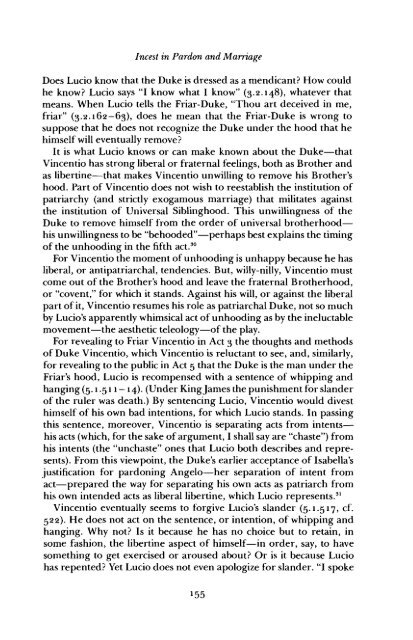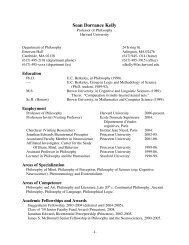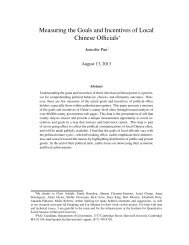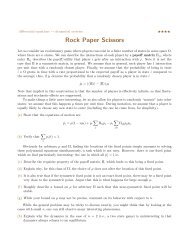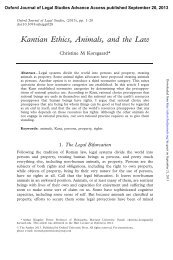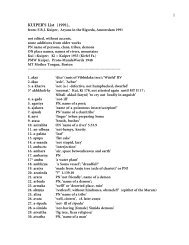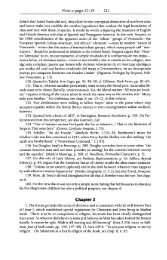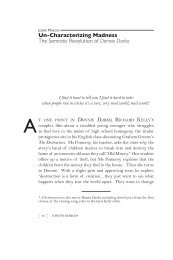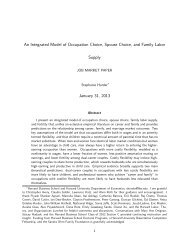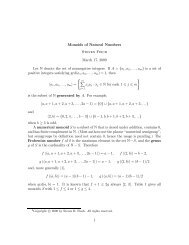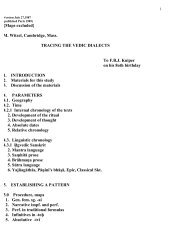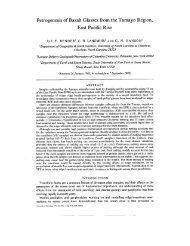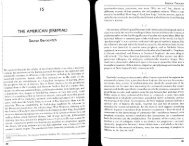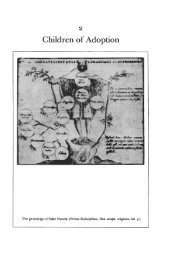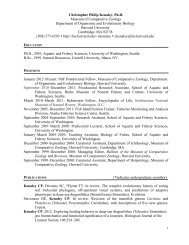Incest in Pardon and Marriage - People Fas Harvard
Incest in Pardon and Marriage - People Fas Harvard
Incest in Pardon and Marriage - People Fas Harvard
You also want an ePaper? Increase the reach of your titles
YUMPU automatically turns print PDFs into web optimized ePapers that Google loves.
<strong>Incest</strong> <strong>in</strong> <strong>Pardon</strong> <strong>and</strong> <strong>Marriage</strong><br />
Does Lucio know that the Duke is dressed as a mendicant? How could<br />
he know? Lucio says "I know what I know" (3.2.148), whatever that<br />
means. When Lucio tells the Friar-Duke, "Thou art deceived <strong>in</strong> me,<br />
friar" (3.2.162-63), does he mean that the Friar-Duke is wrong to<br />
suppose that he does not recognize the Duke under the hood that he<br />
himself will eventually remove?<br />
It is what Lucio knows or can make known about the Duke-that<br />
V<strong>in</strong>centio has strong liberal or fraternal feel<strong>in</strong>gs, both as Brother <strong>and</strong><br />
as libert<strong>in</strong>e-that makes V<strong>in</strong>centio unwill<strong>in</strong>g to remove his Brother's<br />
hood. Part of V<strong>in</strong>centio does not wish to reestablish the <strong>in</strong>stitution of<br />
patriarchy (<strong>and</strong> strictly exogamous marriage) that militates aga<strong>in</strong>st<br />
the <strong>in</strong>stitution of Universal Sibl<strong>in</strong>ghood. This unwill<strong>in</strong>gness of the<br />
Duke to remove himself from the order of universal brotherhood-<br />
his unwill<strong>in</strong>gness to be "behoodedW-perhaps best expla<strong>in</strong>s the tim<strong>in</strong>g<br />
of the unhood<strong>in</strong>g <strong>in</strong> the fifth act."<br />
For V<strong>in</strong>centio the moment of unhood<strong>in</strong>g is unhappy because he has<br />
liberal, or antipatriarchal, tendencies. But, willy-nilly, V<strong>in</strong>centio must<br />
come out of the Brother's hood <strong>and</strong> leave the fraternal Brotherhood,<br />
or "covent," for which it st<strong>and</strong>s. Aga<strong>in</strong>st his will, or aga<strong>in</strong>st the liberal<br />
part of it, V<strong>in</strong>centio resumes his role as patriarchal Duke, not so much<br />
by Lucio's apparently whimsical act of unhood<strong>in</strong>g as by the <strong>in</strong>eluctable<br />
movement-the aesthetic teleology-of the play.<br />
For reveal<strong>in</strong>g to Friar V<strong>in</strong>centio <strong>in</strong> Act 3 the thoughts <strong>and</strong> methods<br />
of Duke V<strong>in</strong>centio, which V<strong>in</strong>centio is reluctant to see, <strong>and</strong>, similarly,<br />
for reveal<strong>in</strong>g to the public <strong>in</strong> Act 5 that the Duke is the man under the<br />
Friar's hood, Lucio is recompensed with a sentence of whipp<strong>in</strong>g <strong>and</strong><br />
hang<strong>in</strong>g (5.1.5 1 1 - i 4). (Under K<strong>in</strong>g James the punishment for sl<strong>and</strong>er<br />
of the ruler was death.) By sentenc<strong>in</strong>g Lucio, V<strong>in</strong>centio would divest<br />
himself of his own bad <strong>in</strong>tentions, for which Lucio st<strong>and</strong>s. In pass<strong>in</strong>g<br />
this sentence, moreover, V<strong>in</strong>centio is separat<strong>in</strong>g acts from <strong>in</strong>tents-<br />
his acts (which, for the sake of argument, I shall say are "chaste") from<br />
his <strong>in</strong>tents (the "unchaste" ones that Lucio both describes <strong>and</strong> repre-<br />
sents). From this viewpo<strong>in</strong>t, the Duke's earlier acceptance of Isabella's<br />
justification for pardon<strong>in</strong>g Angelo-her separation of <strong>in</strong>tent from<br />
act-prepared the way for separat<strong>in</strong>g his own acts as patriarch from<br />
his own <strong>in</strong>tended acts as liberal libert<strong>in</strong>e, which Lucio represent^.^'<br />
V<strong>in</strong>centio eventually seems to forgive Lucio's sl<strong>and</strong>er (5.1.5 17, cf.<br />
522). He does not act on the sentence, or <strong>in</strong>tention, of whipp<strong>in</strong>g <strong>and</strong><br />
hang<strong>in</strong>g. Why not? Is it because he has no choice but to reta<strong>in</strong>, <strong>in</strong><br />
some fashion, the libert<strong>in</strong>e aspect of himself-<strong>in</strong> order, say, to have<br />
someth<strong>in</strong>g to get exercised or aroused about? Or is it because Lucio<br />
has repented? Yet Lucio does not even apologize for sl<strong>and</strong>er. "I spoke


